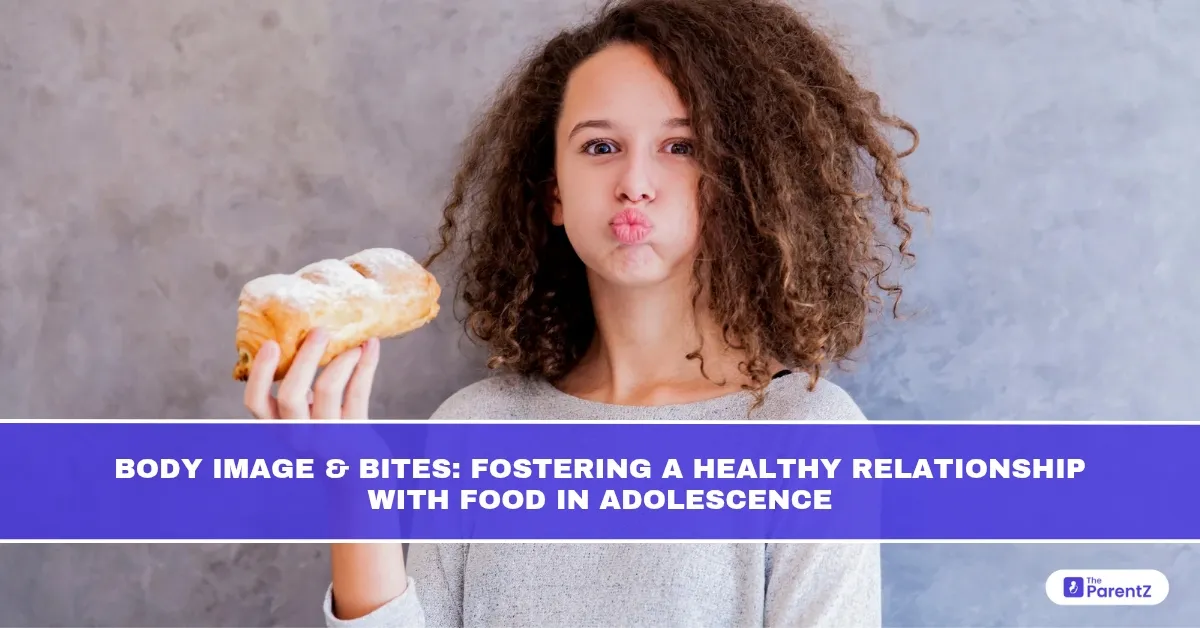Raising teens today feels like going through a minefield. One day they're eating everything in sight, the next they're picking at their food like it's poison. Add social media, influencers, and the constant pressure to look "perfect," and you've got a recipe for disaster when it comes to food and body image.
The World Your Teen Lives In
Your teenager's relationship with food is no longer just about hunger. It's tangled up with likes, follows, and endless scrolling through carefully curated lives. They see "what I eat in a day" videos from influencers who somehow maintain perfect bodies while eating aesthetically pleasing meals. They witness the rise of "body positivity" that sometimes swings too far, making them confused about what's actually healthy.
One minute, they're seeing ultra-thin models promoting "skinny fits" and diet culture. The next, they're watching plus-size creators who might be promoting unhealthy habits under the guise of self-love. It's confusing for adults, so imagine trying to make sense of it as a teenager.
The Different Faces of Food Struggles
The Over-Eaters
Some teens eat when they're stressed, bored, or trying to fill an emotional void. They might sneak food, eat in secret, or constantly think about their next meal. These kids often feel shame around eating and might be dealing with anxiety or depression that manifests through food.
The Under-Eaters
On the flip side, some teens restrict severely. They might skip meals, obsess over calories, or find excuses not to eat. This isn't always about wanting to be thin; sometimes it's about control when everything else feels chaotic.
The Portion Police
These are the kids who weigh their food, count every calorie, or follow rigid meal plans they found online. They might seem "healthy", but their relationship with food is actually quite unhealthy. They've turned eating into a math equation instead of nourishment.
The Chaotic Eaters
Some teens swing between extremes, restricting all day and then binge eating at night, or eating "perfectly" during the week and then going overboard on weekends. This all-or-nothing approach creates a cycle of guilt and shame.
The Uncomfortable Truth About Parents
Here's the hard part: sometimes parents are part of the problem. Maybe you comment on your own body constantly. Maybe you praise your teen for eating less or celebrate weight loss. Maybe you buy into diet culture yourself or make casual comments about food being "good" or "bad."
Kids absorb everything. When you say "I feel so fat" or "I shouldn't eat this," they're listening. When you compliment them for looking "skinny" or express concern about their weight, they internalize that their worth is tied to their appearance.
Some parents unknowingly create food anxiety by being too controlling about what their kids eat, while others go too far in the opposite direction, offering no guidance at all.
How to Actually Help Your Teen
Create a Safe Food Environment
Stock your kitchen with a variety of foods, including fruits, vegetables, proteins, and, yes, some fun snacks too. Don't label foods as "good" or "bad." Instead, talk about how different foods fuel our bodies differently.
Model Healthy Behavior
Stop talking about your own weight, diets, or food guilt in front of your teen. Show them what a wholesome relationship with food looks like by eating regularly, enjoying treats in moderation, and speaking kindly about your body.
Listen More Than You Lecture
If your teen opens up about food or body concerns, resist the urge to immediately fix it. Listen first. Ask questions like "How does that make you feel?" instead of jumping to solutions.
Address the Real Issues
Food struggles often aren't really about food. They might be about stress, perfectionism, peer pressure, or feeling out of control. Help your teen identify what's really going on underneath their relationship with food.
Set Boundaries with Social Media
Have honest conversations about how social media affects their self-image. Consider setting limits on certain apps or following accounts that promote unrealistic standards.
Seek Professional Help When Needed
If your teen's relationship with food is significantly impacting their health, mood, or daily life, don't hesitate to reach out to a therapist who specializes in eating disorders or body image issues.
Conclusion
Help your teen understand that bodies come in all shapes and sizes, and health looks different for everyone. Encourage them to appreciate what their body can do rather than just how it looks. Celebrate strength, energy, and overall well-being rather than appearance.
Remember, you're not just feeding your teen's body; you're shaping their relationship with food for life. Make it a positive one by creating an environment where food is fuel, bodies are respected, and worth isn't measured by the number on a scale.
Your teen is watching and learning from you every day. Make sure you're teaching them that they're worthy of love and respect exactly as they are, while also supporting them in making choices that truly nourish their body and soul.





Be the first one to comment on this story.